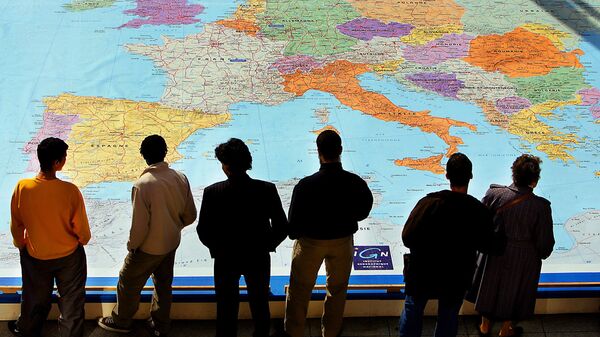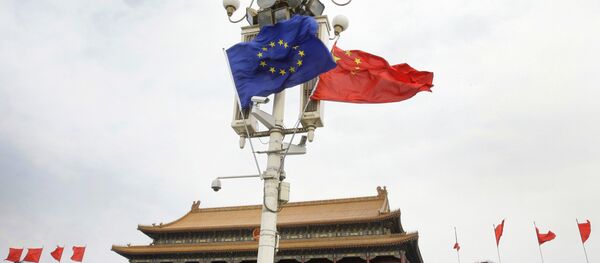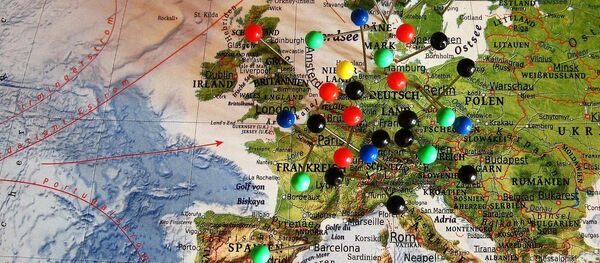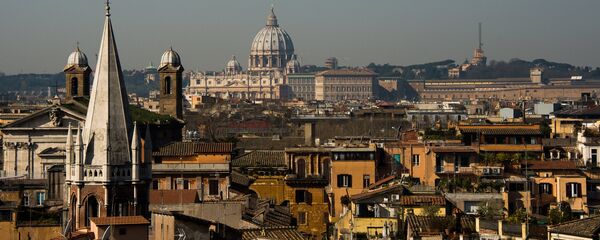Furthermore, the UK's unilateral withdrawal from the EU and inner divisions within the bloc are likely to cast a shadow over the 60th anniversary of the union.
It is expected that the EU member states will discuss the future of the bloc during the upcoming Rome summit.
In the beginning of March, European Commission President Jean-Claude Juncker offered five scenarios for the union's future: "carrying on"; "nothing but the single market"; "those who want more do more"; "doing less more efficiently" and "doing much more together."
Last November Juncker came up with the idea of a "two-speed" Europe, arguing that the European Union should develop a framework within which major member states would be more involved in the bloc's activities while other member will less involved.
"I think that, eventually, it will no longer be possible that 33, 34 or 35 states will proceed at the same speed with the same momentum in the same direction," Juncker said, as quoted by Reuters.
However, even they admit that the EU formula has "exhausted itself": indeed, having incorporated the countries of Central and Eastern Europe in the bloc, Brussels faced with serious political and socio-economic problems.
Speaking to Sputnik Poland, former Polish Prime Minister Leszek Miller suggested that the EU's structure is destined to undergo serious changes.
"I think the process of creating a multi-speed Europe is inevitable because the countries which want a deeper integration of the European Union, should rid the EU of members opposed to this process and are slowing it down," Miller told Sputnik in an exclusive interview.
He emphasized that those countries which are interested in deeper integration, concentrated largely on the Eurozone, should hurry up and get rid of the "ballast" — the countries which don't want to participate in further economic and political integration.
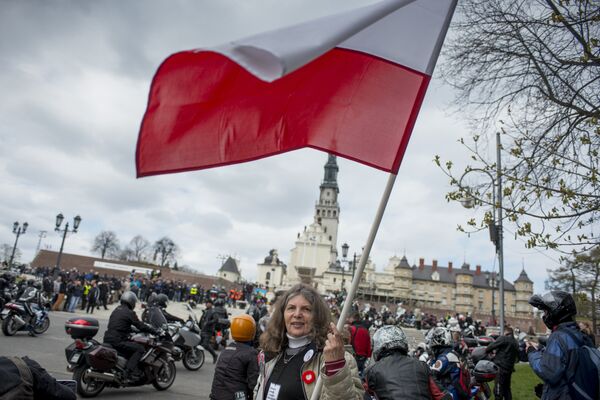
He noted that Poland, which has done almost nothing to join the Eurozone, risks being left out in the cold.
For his part, Leo Luzar, the chairman of the Czech parliament's subcommittee on foreign economic relations, is strongly opposed to the "two-speed" Europe concept.
"It makes no sense, really. If we see Europe as a single whole, there should be no 'first class' and 'second class' citizens, which I believe would be the end of the EU," Luzar told Sputnik Czech.
He expressed his concerns that "all the talk about a 'two-speed' Europe is a smokescreen for their attempts to turn the European Union into a federation," and added that he believes that the Czech Republic "will say a flat no" to a "multi-speed" Europe at the upcoming Rome summit.
He believes that the "multi-speed" Europe scenario bears no relation to reality. According to Blaha, the European technocrats are trying to convince the Central and Eastern European states that the idea is harmless, while it is not as "nice" as it seems.
"They talk about open cooperation. In fact, this will mean that if your opinion does not coincide with that of the strongest [EU members] in just one instance, you won't be able cooperate with them on other issues," he told Sputnik.
Blaha remarked that if the EU finally becomes a puppet of multinational corporations and banks, "it will end badly."
Meanwhile, according to Pasquale Lucio Scandizzo, Professor of Political Economy at the University of Rome Tor Vergata and the president of the OpenEconomics project, the "two-speed" Europe may well mean the end of the "European dream."
"The notion of a 'two-speed Europe' has two meanings: on the one hand, it is a statement of the fact that Europe is moving along at two different speeds: at the speed of the Eurozone and at the speed of the rest of Europe. However there is already a 'two-speed' model within the Eurozone itself: there are more developed countries like Germany and the Netherlands and there are countries which are experiencing certain economic hardships — France, Spain, Italy and others," Scandizzo told Sputnik Italy.
However, Scandizzo believes that the "multi-speed" Europe will offer a way out for Italy and other states which want to opt out of the Eurozone going forward.
"I think there should be a multi-speed EU, and that Italy could avoid [participating in] the Eurozone, but join some other 'club'," he said.
Slobodan Samardzic, Serbia's ex-minister for Kosovo and Metohija, shares a similar stance: according to the Serbian politician, the "multi-speed" Europe concept makes sense.
"I'm not saying we should shut ourselves out of the EU, but we should also have in mind the fact that the EU is no longer in a position to expand any further," he told Sputnik Serbia.
Echoing Miller, Samardzic argued that the EU's structure needs to be reformatted.
"If nothing is done, the EU will find itself on the verge of disintegration," he warned.
"A fiscal union could offer a way out this crisis. We need to save what can still be saved and then all others could be saved too if only the ‘core EU' countries are ready to finance this. What we have now is a complex structure of countries with different economic potential and traditions that are hard to manage from a single center. They want to have a simpler system and rightly so, but what is going to come out of this is anyone's guess," Samardzic concluded.
